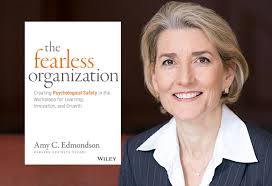In Age of Revolutions: Progress and Backlash from 1600 to the Present, Fareed Zakaria examines pivotal periods of transformation that have shaped the modern world, analyzing their impacts and the subsequent reactions they provoked. Here are the key takeaways:
- Defining Revolutions: Zakaria explores the dual nature of revolutions, highlighting that while they drive progress, they often incite backlash and resistance, leading to complex cycles of change. Super Summary
- The Dutch Golden Age: In the 17th century, the Netherlands underwent significant transformations, becoming the world’s wealthiest nation and pioneering modern political systems. This period exemplifies how economic and political innovations can lead to rapid national advancement. Commonwealth Club
- The French Revolution: Zakaria discusses the French Revolution’s explosive nature, which, despite its initial ideals, led to internal chaos and a legacy of political turmoil, illustrating the unpredictable outcomes of radical change. Commonwealth Club
- The Industrial Revolution: Termed the “mother of all revolutions,” the Industrial Revolution transformed societies, economies, and global power structures, underscoring the profound impact of technological advancements on human development. Foreign Policy
- Modern Revolutions: Zakaria identifies four contemporary revolutions—globalization, technology, identity, and geopolitics—that are reshaping the current world landscape, each bringing both progress and challenges. Commonwealth Club
- Globalization and Technology: While these forces have driven economic growth and interconnectedness, they have also led to disruptions, anxiety, and a sense of loss within communities, highlighting the double-edged nature of rapid progress. Foreign Policy
- Identity Politics: The rise of identity as a central political issue reflects deeper societal shifts and conflicts, often resulting in polarized politics and social fragmentation. Commonwealth Club
- Geopolitical Shifts: The transition from a unipolar world dominated by the United States to a multipolar one introduces new complexities and uncertainties in international relations, necessitating adaptive strategies. Commonwealth Club
- Lessons from History: By analyzing past revolutions, Zakaria suggests that understanding historical patterns of progress and backlash can provide valuable insights for navigating current and future challenges. Super Summary
- Optimism for the Future: Despite the tumultuous nature of revolutions, Zakaria maintains that with wise action, it is possible to revive liberal international order and mitigate the adverse effects of populism and polarization. Commonwealth Club
Zakaria’s analysis underscores the importance of learning from historical revolutions to better understand and address the complexities of today’s rapidly changing world.




